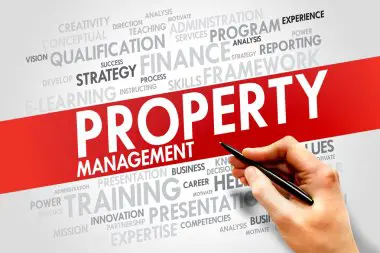
Mastering Property Management Expertise: The Art of Real Estate Management
- Admin
Property management expertise is a multifaceted skill set that encompasses a wide range of responsibilities, from tenant relations to financial management and property maintenance. Those who excel in this field possess a combination of knowledge, experience, and practical skills that enable them to effectively oversee real estate assets and maximize returns for property owners. In this article, we'll delve into the various aspects of property management expertise and how it contributes to success in the real estate industry.
1. Tenant Relations and Communication:
Effective tenant relations are crucial for maintaining tenant satisfaction and reducing turnover rates. Property management experts excel in communication, listening to tenant concerns, and addressing issues promptly and professionally. By fostering positive relationships with tenants, property managers can encourage lease renewals and enhance the overall reputation of the property.
2. Financial Management and Budgeting:
Property management expertise extends to financial management and budgeting. Property managers are responsible for collecting rent, paying expenses, and maintaining accurate financial records. They develop comprehensive budgets that account for operating costs, maintenance expenses, and potential vacancies, ensuring that properties remain financially stable and profitable.
3. Property Maintenance and Upkeep:
Proactive property maintenance is essential for preserving property value and ensuring tenant satisfaction. Property management experts conduct regular inspections, address maintenance issues promptly, and oversee repairs and renovations as needed. By staying proactive and attentive to property maintenance, they can minimize costly repairs and preserve the long-term value of the property.
4. Legal Compliance and Risk Management:
Compliance with local, state, and federal regulations is critical in property management. Experts in the field stay abreast of changing legislation, ensuring that properties remain in compliance with all applicable laws. They also implement risk management strategies to mitigate liabilities, such as obtaining appropriate insurance coverage and addressing safety hazards promptly.
5. Strategic Planning and Decision-Making:
Property management expertise involves strategic planning and decision-making to optimize property performance. Property managers analyze market trends, assess property values, and develop strategies to maximize returns on investment. They make informed decisions about property acquisitions, renovations, and leasing strategies to achieve long-term success for property owners.
6. Professional Development and Continuous Learning:
Property management experts are committed to professional development and continuous learning. They stay updated on industry trends, attend training seminars, and pursue certifications to enhance their skills and knowledge. By investing in their professional development, property managers can stay ahead of the curve and deliver exceptional service to their clients.
In conclusion, property management expertise is a valuable asset in the real estate industry, enabling property managers to effectively oversee properties, maximize returns, and mitigate risks for property owners. By mastering tenant relations, financial management, property maintenance, legal compliance, strategic planning, and investing in continuous learning, property management experts play a vital role in the success of real estate investments.
